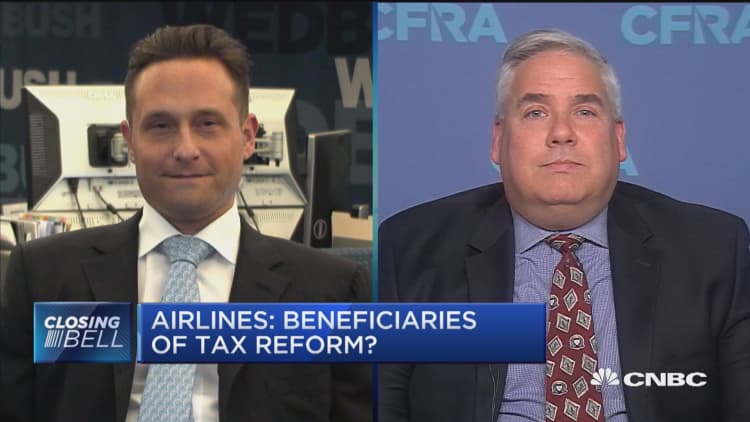Accountants sifting through the Senate version of the GOP tax bill are finding that some of their small business clients may indeed pay more under the proposed legislation.
Generally, the Senate bill will permit small business owners to of their income, allowing them to save on their taxes. This rate will be available to so-called pass-through entities, including S corporations and limited liability companies (LLCs).
The remainder of the income that isn't deductible will be subject to regular income taxes.
Under current law, profits from a small business "pass through" to the owner and are taxed at his or her individual rate, which can be as high as 39.6 percent.
But accountants are saying that the bill isn't quite so generous for entrepreneurs who already take deductions that exceed the Senate's proposed 23 percent.

Service businesses, including lawyers and doctors, will also feel the pain if their taxable income exceeds $500,000 if married ($250,000 if single), as they will begin to phase into higher tax rates.
"At different ranges of income, you're paying an obscene tax rate," said Martin M. Shenkman, a certified public accountant and founder of Shenkman Law in Fort Lee, New Jersey.
"It forces business owners to take artificial steps to make sure they don't fall into the cliff," he said.
Here's why the bill isn't necessarily a giveaway to entrepreneurs – and what they can do about it.
Not so generous
Under the Senate proposal, that 23 percent deduction is fully available, provided income is under $500,000 if married ($250,000 if single).
For example, a married entrepreneur reports income of $200,000 from his business. Of that amount, he can take a 23 percent deduction — $46,000 — which will bring his taxable income to $154,000. That $154,000 will be subject to regular individual income tax rates.
The 23 percent deduction begins to phase out for certain businesses when taxable income is between $500,000 and $600,000. With anything above $600,000, there's no deduction at all.
"We are talking about a large tax benefit that phases out over a pretty small range of income," said Scott Greenberg, a senior analyst at the Tax Foundation.
WATCH: GOP tax bill heads to conference

"People who make good money in that $500,000 to $600,000 range will stop working every year in October and November," said Robert S. Keebler, partner at Keebler & Associates in Green Bay, Wisconsin.
"If I'm a surgeon, and my CPA says to stop working because every dollar I make costs more than a dollar, then I'm buying sunscreen and going to Hawaii," he added.
The power of expenses
High earning professionals aren't the only entrepreneurs who might feel the pain. Tiny businesses who are eligible for the full 23 percent income deduction often log expenses that exceed that amount.
"Twenty-three percent doesn't begin to cover what the expenses are," said Kathleen Huckabay, a certified public accountant in Sammamish, Washington. "Mileage is the biggest expense that they have."
If I'm a surgeon, and my CPA says to stop working because every dollar I make costs more than a dollar, then I'm buying sunscreen and going to Hawaii.Robert S. Keeblerpartner at Keebler & Associates in Green Bay, Wisconsin
Expenses related to equipment, travel costs and other payments related to doing business can lead to deductions of more than 30 percent of income, she said.
Planning ahead
Entrepreneurs are in a tight spot as there are less than three weeks until the end of the year, and there still isn't any indication of how the tax bill will look in the end.
However, now might be a good time to visit your accountant and get an impression of where your income will stand at the end of the tax year.
"Depending on where you fall, some people will try to accelerate income into 2017 because they have a lower rate now versus the Senate bill," said Keebler. "You can accelerate or defer expenses."
Here are a few recommendations from Keebler.
- Turn in your financial records to your CPA: You should already be planning for your end-of-year business deductions anyway. Your CPA can prepare a snapshot of how your business and personal income will look for 2017
- Strategize on itemized deductions: Both GOP bills call for cuts to itemized deductions, so take your tax breaks while they're still available.
- Identify business income and expenses that can be accelerated or deferred: For instance, you can pay a bill that's due next year now and log the expense in 2017.
- Circle back: Revisit your deductions, business income and expenses after the bill is finalized.
More from Personal Finance
WATCH: Treasury report says tax cuts pay for themselves



